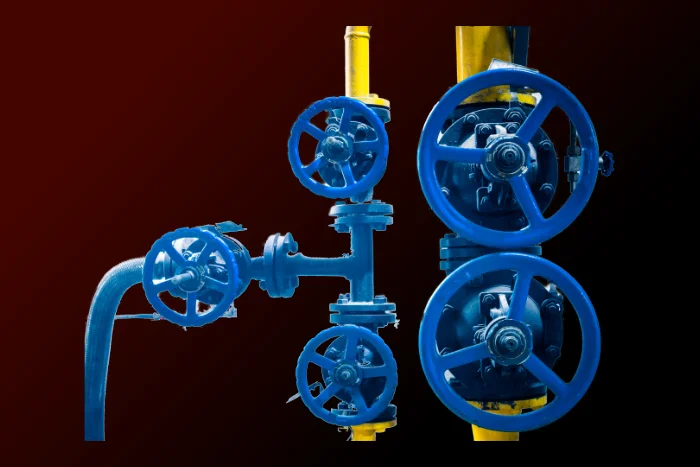Valves
 Valves are critical components in the oil industry, serving as control devices that regulate the flow of fluids (oil, gas, water, chemicals) throughout the entire production and processing chain. They’re essentially the gatekeepers of the oil and gas infrastructure.
Valves are critical components in the oil industry, serving as control devices that regulate the flow of fluids (oil, gas, water, chemicals) throughout the entire production and processing chain. They’re essentially the gatekeepers of the oil and gas infrastructure.
Key Functions of Valves in the Oil Industry:
- Flow Control: Regulating the rate of fluid movement through pipelines and equipment
- Pressure Management: Maintaining appropriate pressure levels to prevent system damage
- Direction Control: Routing fluids through desired pathways in complex systems
- Isolation: Shutting off sections of systems for maintenance or emergency purposes
- Safety: Preventing backflow, overpressure, or release of hazardous materials
Common Types of Valves in Oil Operations:
-
Gate Valves: Used for on/off control with minimal flow restriction when fully open
- Common in pipeline systems where full flow capacity is needed
-
Ball Valves: Provide quick on/off control with a quarter-turn operation
- Essential for emergency shutdowns and applications requiring tight sealing
-
Check Valves: Allow flow in only one direction
- Prevent backflow in pumping systems and pipelines
-
Globe Valves: Enable precise flow regulation
- Used in applications requiring throttling capabilities
-
Butterfly Valves: Lightweight valves that require minimal space
- Common in large diameter lines where weight and space are concerns
-
Choke Valves: Specifically designed to control and reduce pressure
- Critical in wellheads to regulate production flow
-
Pressure Relief Valves: Automatically release pressure if it exceeds safe limits
- Essential safety components throughout oil and gas systems
Key Applications in the Oil Industry:
- Wellhead Control: Managing flow from the reservoir to the surface
- Manifold Systems: Directing production from multiple wells
- Processing Facilities: Controlling flow through separators, treaters, and storage
- Pipeline Networks: Regulating transport of products across vast distances
- Refineries: Managing complex fluid routing through various processing units
- Loading/Offloading Systems: Controlling transfer to tankers or storage facilities
Valves represent a critical point of control and potential failure in oil systems. Their proper selection, installation, and maintenance are essential for operational efficiency, environmental protection, and worker safety throughout the oil and gas value chain.



